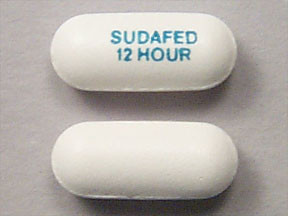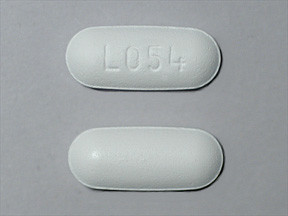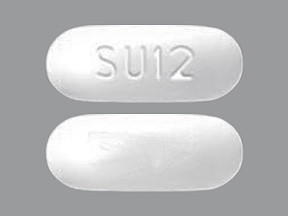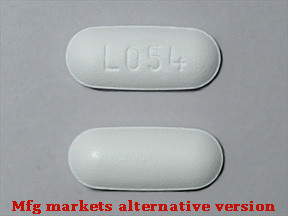PSEUDOEPHEDRINE SUSTAINED-RELEASE - ORAL
PHONETIC PRONUNCIATION: (sue-doh-eff-ED-rin)
COMMON BRAND NAME(S): Afrin, Dimetapp, Drixoral, Sudafed
GENERIC NAME(S): pseudoephedrine HCl
Uses
USES: Pseudoephedrine is used for the temporary relief of stuffy nose and sinus pain/pressure caused by infection (such as the common cold, flu) or other breathing illnesses (such as hay fever, allergies, bronchitis). Pseudoephedrine is a decongestant (sympathomimetic). It works by narrowing the blood vessels to decrease swelling and congestion. If you are self-treating with this medication, it is important to read the manufacturer's package instructions carefully so you know when to consult your doctor or pharmacist. (See also Precautions section.) Cough-and-cold products have not been shown to be safe or effective in children younger than 6 years. Long-acting tablets/capsules are not recommended for use in children younger than 12 years. Do not use this pseudoephedrine product in children younger than 12 years unless specifically directed by the doctor. Ask your doctor or pharmacist for more details about using your product safely. These products do not cure or shorten the length of the common cold and may cause serious side effects. To decrease the risk for serious side effects, carefully follow all dosage directions. Do not use this product to make a child sleepy. Do not give other cough-and-cold medication that might contain the same or similar ingredients (see also Drug Interactions section). Ask the doctor or pharmacist about other ways to relieve cough and cold symptoms (such as drinking enough fluids, using a humidifier or saline nose drops/spray).
How to use PSEUDOEPHEDRINE SUSTAINED-RELEASE - ORAL
HOW TO USE: If you are taking the over-the-counter product to self-treat, read all directions on the product package before taking this medication. If you have any questions, ask your doctor or pharmacist. If your doctor has prescribed this medication, take it as directed. Take this medication by mouth with or without food, usually every 12 or 24 hours, depending on the product or as directed by your doctor or the product package. Do not take more than 240 milligrams in a day. Dosage is based on your age, medical condition, and response to treatment. Do not increase your dose or take this drug more often than directed. Do not take more of this medication than recommended for your age. If you are using the suspension (liquid), shake the bottle well before each dose. Use a medication-measuring device or spoon to carefully measure the dose. Do not use a household spoon because you may not get the correct dose. Take the capsules or tablets with a glass of water. Swallow the capsules whole. Do not crush or chew the capsules or tablets. Doing so can release all of the drug at once, increasing the risk of side effects. Also, do not split the tablets unless they have a score line and your doctor or pharmacist tells you to do so. Swallow the whole or split tablet without crushing or chewing. There are many brands and forms of pseudoephedrine available. Read the dosing instructions carefully for each product because the amount of pseudoephedrine may be different between products. Do not take more pseudoephedrine than recommended. Caffeine can increase the side effects of this medication. Avoid drinking large amounts of beverages containing caffeine (coffee, tea, colas), eating large amounts of chocolate, or taking nonprescription products that contain caffeine. If your symptoms do not improve after 7 days, if they worsen or return, if you develop fever, rash, or a persistent headache, or if you think you may have a serious medical problem, seek immediate medical attention.
Side Effects
Precautions
Interactions
Overdose
Images

- color
- white
- shape
- oblong
- imprint
- SUDAFED 12 HOUR
Reviews
Faq for PSEUDOEPHEDRINE SUSTAINED-RELEASE - ORAL
Pseudoephedrine sustained-release oral medication is used to relieve symptoms associated with allergies, sinus congestion, and the common cold. It helps to reduce stuffiness in the nose and sinuses.
Pseudoephedrine is a decongestant that works by narrowing blood vessels in the nasal passages, reducing swelling and congestion. It helps to relieve sinus pressure and improve breathing.
Common side effects may include restlessness, irritability, nervousness, increased heart rate, elevated blood pressure, headache, dizziness, insomnia, and stomach upset. These side effects are generally mild and go away on their own. However, if you experience severe side effects like difficulty breathing or an irregular heartbeat, seek medical attention immediately.
Pseudoephedrine is a stimulant, and it does not typically cause drowsiness. However, some individuals may experience an opposite reaction, feeling hyperactive or restless. It is important to read the medication label and consult with a healthcare professional if you are concerned about potential drowsiness.
Dosage instructions may vary depending on the specific product and the individual's age and medical condition. Follow the directions provided by your healthcare provider or the instructions on the medication label. Do not exceed the recommended dosage or take it for longer than necessary.
Pseudoephedrine can increase blood pressure and heart rate, so it is generally not recommended for individuals with high blood pressure or cardiovascular conditions. It is important to consult with your healthcare provider to determine if this medication is suitable for you or if there are alternative options available.
Pseudoephedrine is generally not recommended during pregnancy due to potential risks to the developing fetus. It is also not recommended during breastfeeding as it can pass into breast milk. It is advisable to consult with a healthcare professional before using this medication if you are pregnant or breastfeeding.
Disclaimer
IMPORTANT: HOW TO USE THIS INFORMATION: This is a summary and does NOT have all possible information about this product. This information does not assure that this product is safe, effective, or appropriate for you. This information is not individual medical advice and does not substitute for the advice of your health care professional. Always ask your health care professional for complete information about this product and your specific health needs.




For Test: Test
By Test on 19 Mar, 2019